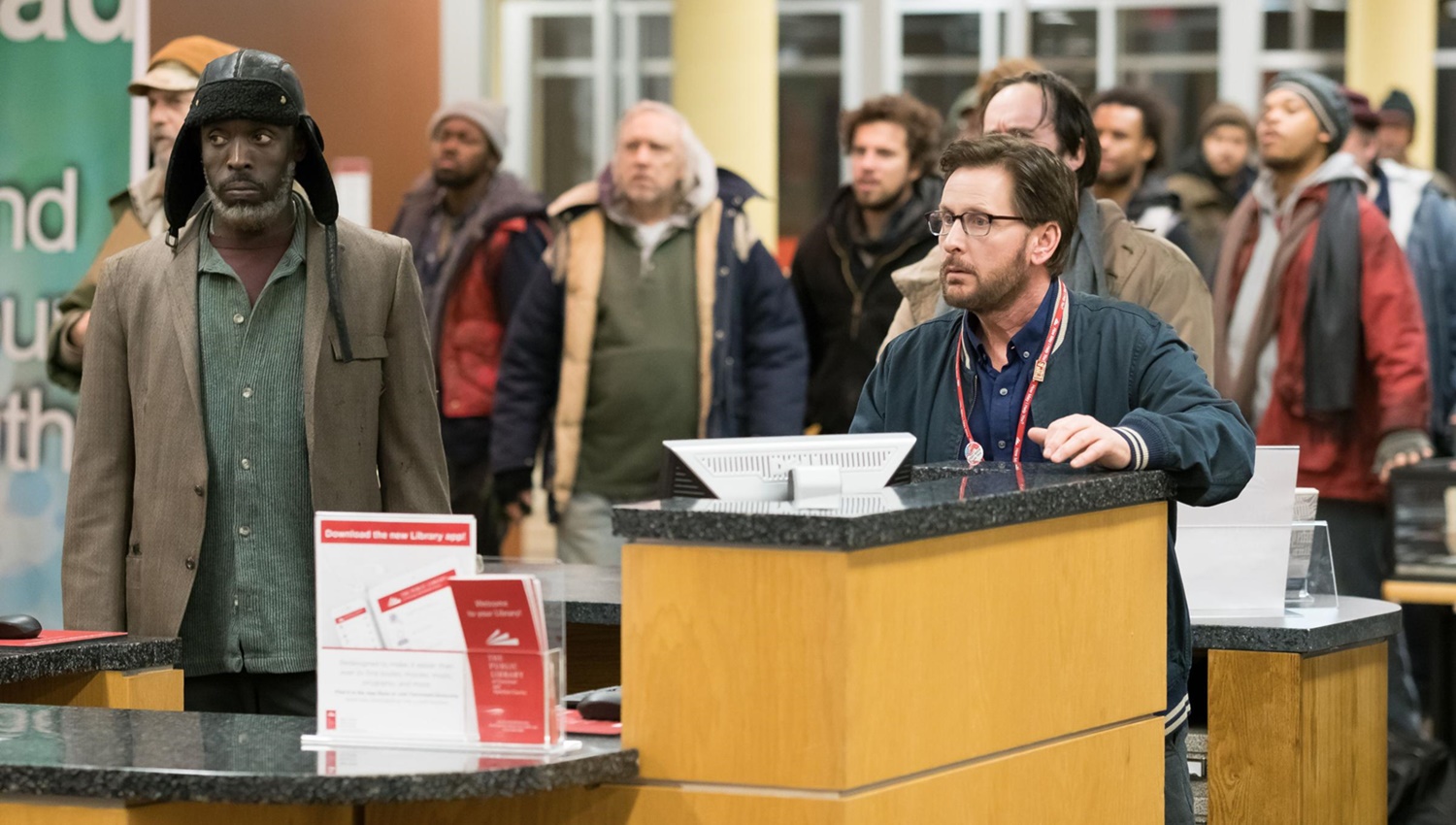
The Public
Dustin Chase
Emilio Estevez follows up his 2010 project “The Way” with another informative, social drama called “The Public.” Written, directed, and staring Estevez, his story reminds us of the saying “no good deed goes unpunished.” In this case, he takes a really impressive cast and wraps them around a story of social injustice, politics and what’s right over what’s legal. “The Public” is inadvertently preachy in the most humanitarian of ways, meaning Estevez’ good intentions here are visible throughout. The story he has concocted here allows an audience to debate all sides of the issue. It also asks the viewer to assume a number of specific elements in order for the plot to work. The cast works well here, especially Baldwin and Malone.
It’s been a cold winter, consistently below 10 degrees in Cincinnati Ohio. Night after night, homeless men are freezing to death on the streets because there isn’t enough shelter in the city or mental disability prevents them from getting to a safe place. The local public library has become a sanctuary for the homeless, lining up from the moment the doors open, making use of every last minute before it closes. Stuart Goodson (Estevez) is the librarian in charge. Formerly homeless himself, he claims it was books that saved his life. So when 70 or so homeless men stage a sit-in, Stuart chooses to allow them to remain. Things get out of hand when the news media report it as a hostage situation. The police are called, and suddenly Stuart is being accused of trying to destroy the very institution he believes in.
The ensemble is the greatest achievement here, big and small names lending their talent to a project that could have had an effect if Estevez had managed to take this work to a higher quality level.
“You are either one of us or one of them,” Stuart is told by the man leading the homeless sit-in. And that’s how “The Public” presents the story, asking the viewer to deliberate their own feelings on each issue. Estevez’s screenplay raises many unanswered questions that strike directly at “The Public’s” credibility. Does a city like Cincinnati lack shelters for its homeless population? Do other cities come up short in similar situations? Estevez jumps quite a few steps from homeless people sheltering in place to Jena Malone’s sarcastic character accusing the police of brutality. Although, it must be said that Malone offers the film some of its finest sarcasm. Slater is playing the typical heartless villain, while Union plays a bloodsucking TV reporter, and Baldwin’s character tries to exact the truth on both sides.
“The Public” is intended to create a conversation and it almost gets there, but the movie always has a “made for television” quality that reassures the audience everything will be ok in the end. We’ve all seen hostage movies before and while “The Public” isn’t really one of those, Estevez uses the framework of those movies to lay out his social message. The ensemble is the greatest achievement here, big and small names lending their talent to a project that could have had an effect if Estevez had managed to take this work to a higher quality level. “They will never forget what happened here today,” (Williams) says near the end of the movie. Another moment in a movie that’s self-importance is slightly misplaced given its limitations.
Final Thought
Estevez gets points for effort and the assembly of actors but the finished product is a TV movie of the week.
